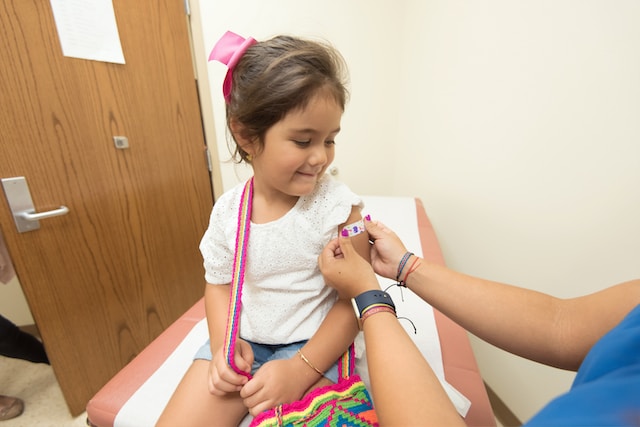Your responsibility as a parent is to meet basic needs and ensure that your child flourishes in a caring atmosphere.
Giving child-sensitive attention fosters safe bonds necessary for cognitive and social development. You build trust and promote your child’s sense of safety and self-worth, improving emotional intelligence, resilience, and empathy. Caring for your child gives them good physical health and neurological development. Furthermore, it promotes the healthy parent-child interaction required for open communication and long-term bonding.
Therefore, you must understand how to care for your children tenderly. It will not only make them feel loved but will grow your bond and also provide fast healing. In this post, we will look at essential tips for nursing your child, giving pediatric care, and establishing an environment in which they can thrive and feel safe when they are not feeling well.
Keep the Room Airy
A well-ventilated environment is essential for your child’s wellness. It prevents the accumulation of pollutants and lowers the risk of respiratory problems. Fresh air is not only refreshing, but it also contributes to the room’s appropriate oxygen levels. Hence, keep windows open whenever possible. Invest in permeable curtains instead of heavy drapes, which can trap stale air. To maintain air quality, clean air vents and filters regularly. Not only can a well-ventilated room promote better sleep, but it also contributes to your child’s general comfort and health.
Give Your Child Plenty to Drink
Hydration is essential to child care, influencing many areas of their well-being. Make sure your child receives plenty of water throughout the day. For infants, this means breast milk or formula. If your child has graduated to solids, include water and age-appropriate liquids in their diet.
Pay attention to thirst signs and encourage sipping water between meals. Proper hydration improves digestion, maintains body temperature, and supports cognitive functions. Keep an eye on the weather since higher temperatures may need more fluid consumption. Keeping your child hydrated improves their general health and lays the groundwork for future good habits.
Schedule Urgent Care
Urgent care is an essential component of proactive parenting. Hence, consider visiting a Centers Urgent Care that allows immediate physician appointments and walk-in clients whenever your child seems too uncomfortable or not their usual self. It guarantees your child quick access to medical care, ensuring random injuries, or illnesses do not affect their growth and development. Urgent care will always allow you to discuss any concerns or questions regarding your child’s health at the moment and how to provide continued care at home and whether you need to follow up with regular check-ups.
Ensure Preventive Care
Immunizations are essential to preventive care and are frequently given during these check-ups. Maintain awareness of your child’s vaccination schedule and ensure that they receive all prescribed shots. Regular health checks enable early detection and response in the event of prospective health problems. A solid rapport with your child’s healthcare professional is essential for creating a collaborative approach to their well-being.
Ensure Plenty of Rest
Adequate sleep is critical for a child’s physical and mental development. Create a consistent bedtime ritual that promotes relaxation and tells your child it is time to unwind. Create a relaxing sleeping environment using a soft mattress, soft bedding, and dim lighting. The recommended amount of sleep varies by age, so keep your child’s needs in mind.
Naps should be prioritized for younger children because they contribute significantly to their overall sleep quota. Keep an eye out for indicators of exhaustion and alter your routine accordingly. A well-rested child is likelier to be attentive, receptive, and prepared to face the day’s challenges.
Keep Them Company
Emotional well-being is as important as physical health in a child’s developmental journey. Providing enough companionship can create an environment where your child feels emotionally safe. Engage in interactive play, read stories, and participate in bonding activities. Respond quickly to your child’s joyful, distressed, or curious indications.
A strong emotional bond is the foundation for a child’s social and cognitive development. Encourage open communication from the start to create trust and understanding. Be aware of your child’s moods and feelings, and offer comfort and support as required. The presence of a caring and responsive caregiver dramatically enhances a child’s overall sense of security and contentment.
Encourage Healthy Eating Habits
The importance of nutrition in your child’s growth and development cannot be overstated. Healthy eating habits established young age create the groundwork for a lifetime of well-being. Your child’s diet should include fruits, vegetables, whole grains, and lean proteins. Set a positive example by incorporating healthy eating habits into your daily routine. Reduce your consumption of sugary meals and beverages in favor of healthier alternatives. Consider portion amounts and teach your child to identify hunger and fullness cues from their body. Speak with a pediatric dietitian if you are concerned about your child’s dietary needs.
Conclusion
Tender care is critical for any child. By implementing these techniques into your daily routine, you will not only be meeting your child’s present needs, but you will also be laying the groundwork for a healthy and prosperous future.
For more parenting tips check out ice cream n sticky fingers.

